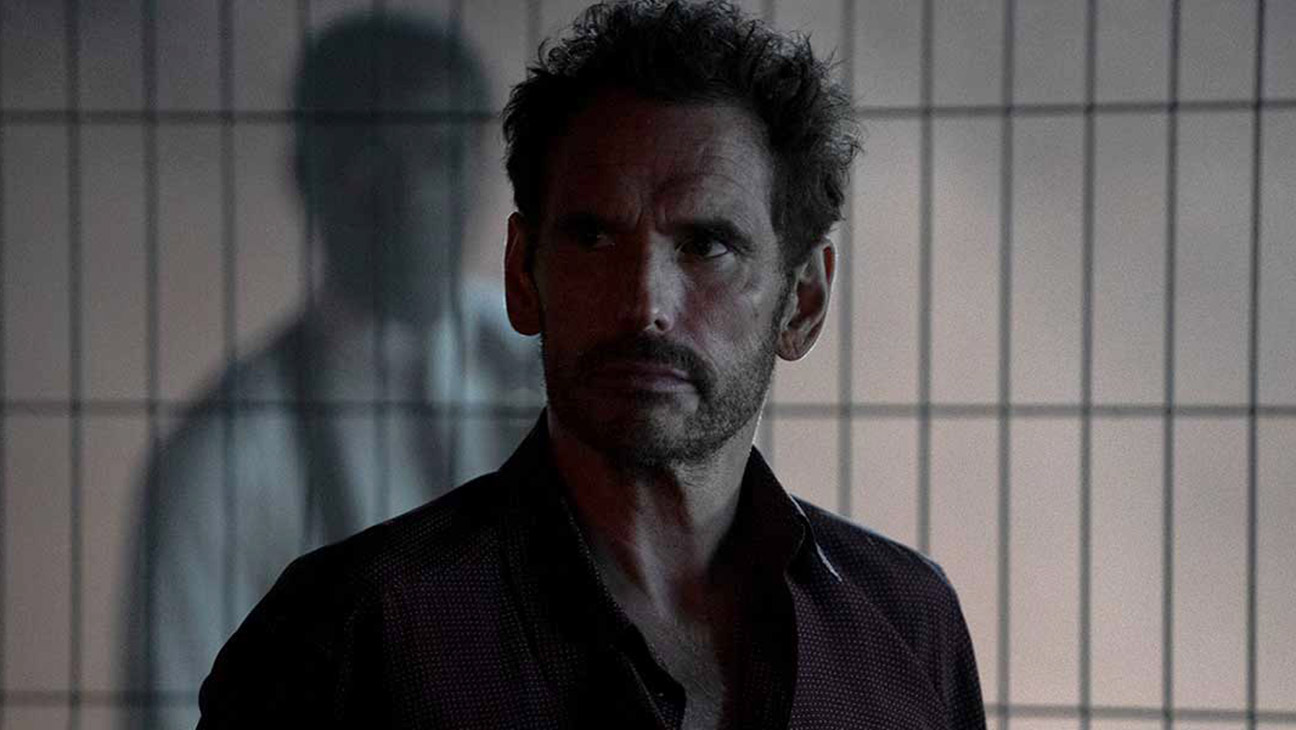As a Frenchwoman who spent most of her childhood in West Africa, Claire Denis is no stranger to the social and racial tensions colonialism left behind on the continent. From her breakout feature, Chocolat, to works like White Material and her masterpiece, Beau Travail, she’s explored those tensions through enigmatic stories about white characters living in a land that doesn’t necessarily want them anymore.
That sentiment is front and center in The Fence, a sequestered and highly theatrical drama set on an African construction site that feels much more like a colonial outpost. The remote, dust-filled locale is overseen by Horn (Matt Dillon), a world-weary American foreman who, in the course of one very long night, has to deal with both a possible murder cover-up and the arrival of his British girlfriend, Leonie (Mia McKenna-Bruce), in hostile territory.
The Fence
The Bottom Line
A minor film from a major director.
Venue: Toronto International Film Festival (Special Presentations)
Cast: Matt Dillon, Isaach De Bankolé, Mia McKenna-Bruce, Tom Blyth, Brian Begnan
Director: Claire Denis
Screenwriters: Suzanne Lindon, Andrew Litvack, Claire Denis, adapted from the play Black Battles with Dogs by Bernard-Marie Koltès
1 hour 49 minutes
Adapted from the 1979 play by Bernard-Marie Koltès (a celebrated French playwright who died from AIDS at age 41), this is one of the director’s stagier movies, eschewing her trademark visual lyricism to concentrate more on dialogue and performance — sometimes to a fault. But she also coaxes terrific turns out of younger cast members McKenna-Bruce (star of How to Have Sex) and the magnetic Tom Blyth, whose onscreen chemistry conveys the kind of sensual longing Denis is known for.
Blyth plays Cal, a jumpy and cocksure construction manager who is very much the third wheel — or more like the monkey wrench — in the recent couple formed by Leonie and the considerbly older Horn. Even worse, Cal could be behind the death of an African worker (Brian Begnan), whose brother, Alboury, has shown up at the site to claim the man’s body.
That brother is portrayed by Ivorian actor Isaach de Bankolé, a regular of Denis’ since Chocolat, who appears here as a looming menace, standing on the other side of the fence that separates the white characters from the countryside. Soft-spoken and unrelenting, Alboury emerges as the only moral voice in a land of postcolonial abandon, refusing to let Cal get away with what may be homicide, while disrupting Horn’s romantic first night with Leonie.
Of course, romanticism has never been Denis’ thing, and from the moment Leonie touches down at a tiny airstrip, the reality of where she’s landed becomes apparent. Cal picks her up in a muddy old 4×4, then takes her on a bumpy ride through the bush during which the tension quickly heightens between them. When a crow flies into the pickup’s fender, Cal gets out and uses a rock to put the bird out of its misery. So much for the safari.
That long driving sequence, and a few other scenes between Blyth and McKenna-Bruce, reveal Denis’ talent for fostering a taut and highly sexualized atmosphere on the verge of either explosion or desolation. Working with DP Eric Gautier (who also shot the director’s last feature, Cannes prizewinner Stars at Noon), she makes the most out of the limited setting, especially when the camera ventures beyond the construction headquarters — basically a bunch of shipping containers stuck together — to explore the dark vastness outside.
Less convincing are some of the dramatically hefty scenes involving Dillon’s Horn, who seems, at times, to be reciting his dialogue rather than fully embodying it. His scenes can feel both loaded and stilted, as if they were translated from the Koltès play without organically working themselves into the movie.
Denis is a great director of actors, but we remember her films less for the lines her characters say — if they even speak (see her haunting and nearly mute thriller, The Intruder) — than for how she avidly captures their bodies in motion. Many of the best Denis performances, such as Alex Descas’ in 35 Shots of Rum or Denis Lavant’s in Beau Travail or, are feats of pure physicality.
The Fence suffers from dialogue overload and a somewhat stagy mise-en-scène, although those elements occasionally yield strong sequences fraught with unsettledness, if not outright hostility, when the drama finally boils over. As the night wanes and the truth behind Cal’s act and Horn’s past comes to light, the conflict spills out into the sunshine, leaving none of the characters unscathed.
The film’s downbeat ending shouldn’t surprise anyone familiar with Denis’ movies, which have always leaned toward tragedy, especially when the action has been set in Africa. The difference here is how explicitly that tragedy appears, whereas the director built much of her best work on nuance and suggestion — on the viewer experiencing events rather than fully grasping them. The Fence features some of that moody allusiveness as well, but ultimately plays like the minor work of a still major filmmaker.

